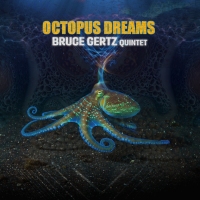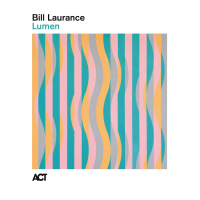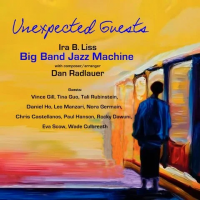Home » Jazz Articles » Multiple Reviews » Emanem Tidies Up
Emanem Tidies Up

Derek Bailey
guitar1932 - 2005
The two double-disc releases, below. are shining examples, as the recordings in question date from 1961, and 1973 through to 1981, respectively. They are sensibly programmed and meticulously documented, making each of them an essential pillar of the discography of the ensemble in question.
 Jimmy Giufffre 3 with Paul Bley & Steve Swallow
Jimmy Giufffre 3 with Paul Bley & Steve Swallow Bremen & Stuttgart 1961
Emanem
2016
With the benefit of 20-20 hindsight, clarinetist

Jimmy Giuffre
clarinet1921 - 2008
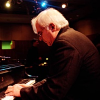
Paul Bley
piano1932 - 2016

Steve Swallow
bassb.1940
As its title suggests, Bremen & Stuttgart 1961 is a reissue of the two 1993 hat ART live albums in their entirety, with the bonus of six previously unreleased tracks from Bremen and two tracks from the Fusion session that did not make it onto the ECM reissue. The music consisted of relatively short compositions, mainly by Giuffre himself but others by Paul Bley,

Carla Bley
piano1938 - 2023
An advantage of having the Bremen and Stuttgart concerts side by side on one album is that their different versions of pieces can be compared, such comparisons revealing that the music's direction could change radically on different nights. For instance, in Stuttgart Paul Bley's "Carla" lasted five-and-a-half minutes while in Bremen it was some three minutes longer. More importantly, three previously unreleased tracks are included from Bremen featuring Bley and Swallow as a duo—Monk's "Ba-Lue Bolivar Ba-Lues Are," Ornette's "Compassion for P.B." and the Vernon Duke standard "I Can't Get Started"—a welcome bonus that fits in perfectly with the trio pieces.
Altogether, this album is one of the very best re-releases of recent years; taken together with 1961 and Free Fall, it provides encyclopaedic coverage of this historically vital and endlessly enjoyable group. Simply essential.
 Spontaneous Music Orchestra directed by John Stevens
Spontaneous Music Orchestra directed by John Stevens Search and Reflect
Emanem
2016
Crossing the Atlantic and hopping forward a decade, we encounter another ensemble that was vital to the development of improv, albeit one that is often overshadowed by a smaller sibling. The " data-original-title="" title="">Spontaneous Music Orchestra (SMO) was the name given to expanded versions of
John Stevens
drumsb.1940

Evan Parker
saxophone, sopranob.1944
Back in those days, Davidson did not always keep a record of everyone involved, so some of the personnel listed below are rather speculative. In the past, SME and SMO tracks appeared side by side on some Emanem releases but now, in a sensible act of re-curation, the two are being separated, leading to this SMO compilation album which contains tracks previously found on Mouthpiece (Emanem, 2000), Plus Equals (Emanem, 2001) and Trio & Triangle (Emanem, 2008).
Fittingly, this release bears the title Search and Reflect which was also the title of a 1985 book by Stevens. Subtitled "a music workshop handbook," it contained many pieces designed to be used in his community music workshops, pieces that are still widely used in improvising workshops, over two decades after Stevens' death. Titles such as "Click Piece," "Sustain," "One-Two" and "Triangle," which are familiar to SME and SMO aficionados, come straight out of the book's pages. Given the size of SMO at its largest, and the fact that it could include players of varying abilities, the use of such pieces was vital to give the ensemble's music coherence and to avoid it descending into an anarchic cacophony of cocktail-party chatter.
The opening twenty-minute track, "In Relation to Silence," from 1973, consists primarily of short notes sounded on a range of instruments; crucially, as Stevens intended, there is clear evidence of all the players leaving space for one another and listening to what the others are playing. Two contrasting versions of "Sustained Piece," one instrumental, the other vocal, display the same strengths and discipline. The album's centrepiece and highlight is the forty-minute, multi-part "Plus Equals," dating from St. John's Smith Square in January 1975. The 21-strong SMO is equally split between SME members and workshop players, but the casual listener would be hard-pressed to detect that, as the piece in question integrated the two camps exceptionally well.
Throughout its hundred-and-forty-one minutes, the music here is eloquent testimony to the success of Stevens' abilities as a workshop leader, group leader, communicator and writer. Although the reputations of the two are sure to remain intertwined, this album seems destined to raise the profile of SMO to be nearer to that of SME. As with the Giuffre album, above, Search and Reflect will remain enjoyable and informative for decades to come. Bravo, Emanem.
Tracks and Personnel
Bremen & Stuttgart 1961
Tracks: Call of the Centaur? Postures? Sonic? Goodbye? Suite for Germany? Cry, Want? Flight? That's True, That's True? Jesus Maria? Carla? Whirrrr? Venture? Ba-Lue Bolivar Ba-Lues Are? I Can't Get Started? Compassion for P.B.? Whirrrr? Emphasis? Sonic? Venture? Jesus Maria? Suite for Germany? Carla? Cry, Want? Trudgin' (original take) ? Used to be.
Personnel: Jimmy Giuffre: clarinet (1-13, 17-26) ? Paul Bley: piano? Steve Swallow: double bass.
Search and Reflect
Tracks: In Relationship to Silence; Sustained Piece (instrumental); Sustained Piece (vocal); One-Two; Mouthpiece; Plus Equals (Search & Reflect, Sustained Piece, Free Improvisation); Triangle; a fragment of Static.
Personnel: John Stevens: cornet, percussion (6-8), voice (7-8); Nigel Coombes: violin; Trevor Watts: soprano saxophone; Brian Eley: voice (1-5); Ron Herman: double bass (1-5); Marc Meggido: double bass (1-5); Simon Mortimer: piano (1-5); John Russell: electric guitar (1-5); Paul Shearsmith: cornet (1-5); Dave Solomon: percussion (1-5); Larry Stabbins: saxophone (1-5); Dave Panton: various (1-5); Chris Turner: various (1-5); Herman Hauge: alto saxophone (1-6); Martin Mayes: French horn (6); Robert Calvert: sopranino saxophone (6); Evan Parker: soprano saxophone (6); Bob Turner: soprano saxophone (6); Dave Decobain: alto saxophone (6); Ye Min: alto saxophone (6); Chris Turner: harmonica (6); Peter Drew piano (6); Ian Brighton: electric guitar (6); Robert Carter: violin (6); Stephen Luscomb: violin (6); Lindsay Cooper: cello (6); Jane Robertson cello (6); Colin Wood: cello (6); Angus Fraser: double bass (6); Marcio Mattos: double bass (6); Roger Smith: guitar (6-8); Maggie Nicols: voice (7, 8); Jon Corbett: trumpet (7, 8); Alan Tomlinson: trombone (7, 8); Paul Rutherford: euphonium (7), trombone (8); Lol Coxhill: soprano saxophone (7, 8); Howard Riley: piano (8).
Tags
Jimmy Giuffre
Multiple Reviews
John Eyles
United Kingdom
London
Derek Bailey
Emanem
Paul Bley
Steve Swallow
carla bley
Spontaneous Music Orchestra
John Stevens
Spontaneous Music Ensemble
evan parker
Comments
PREVIOUS / NEXT
Support All About Jazz
 All About Jazz has been a pillar of jazz since 1995, championing it as an art form and, more importantly, supporting the musicians who make it. Our enduring commitment has made "AAJ" one of the most culturally important websites of its kind, read by hundreds of thousands of fans, musicians and industry figures every month.
All About Jazz has been a pillar of jazz since 1995, championing it as an art form and, more importantly, supporting the musicians who make it. Our enduring commitment has made "AAJ" one of the most culturally important websites of its kind, read by hundreds of thousands of fans, musicians and industry figures every month.
Go Ad Free!
To maintain our platform while developing new means to foster jazz discovery and connectivity, we need your help. You can become a sustaining member for as little as $20 and in return, we'll immediately hide those pesky ads plus provide access to future articles for a full year. This winning combination vastly improves your AAJ experience and allow us to vigorously build on the pioneering work we first started in 1995. So enjoy an ad-free AAJ experience and help us remain a positive beacon for jazz by making a donation today.

London
Concert Guide | Venue Guide | Local Businesses
| More...



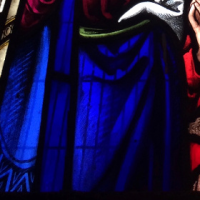
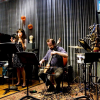

 Buy Now
Buy Now






